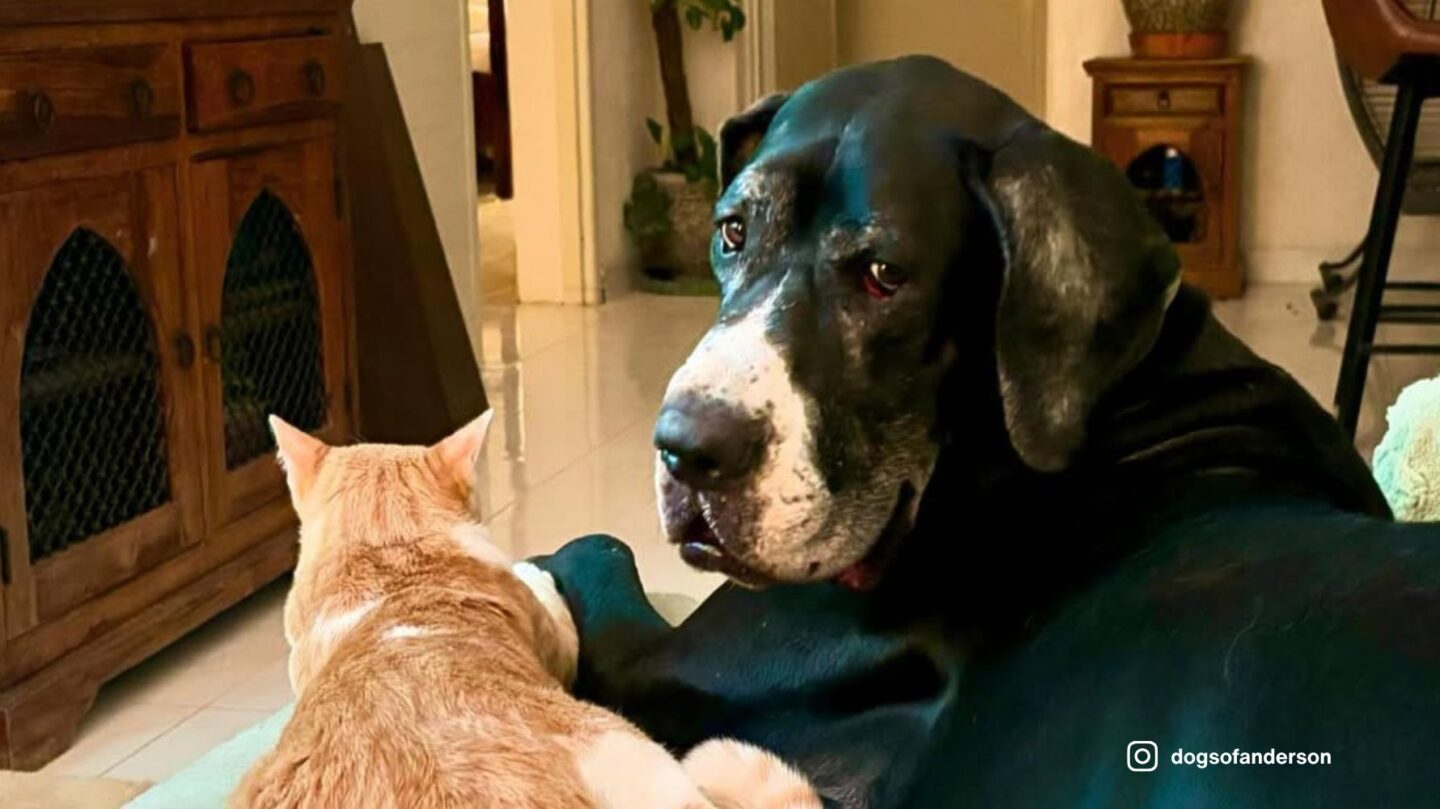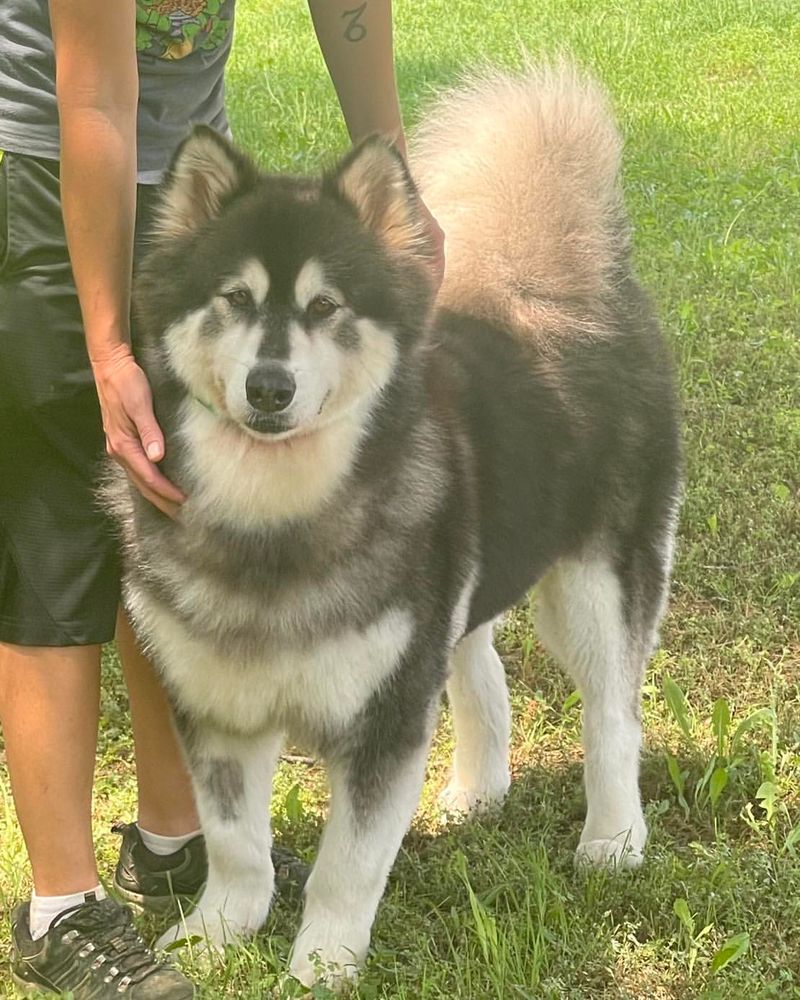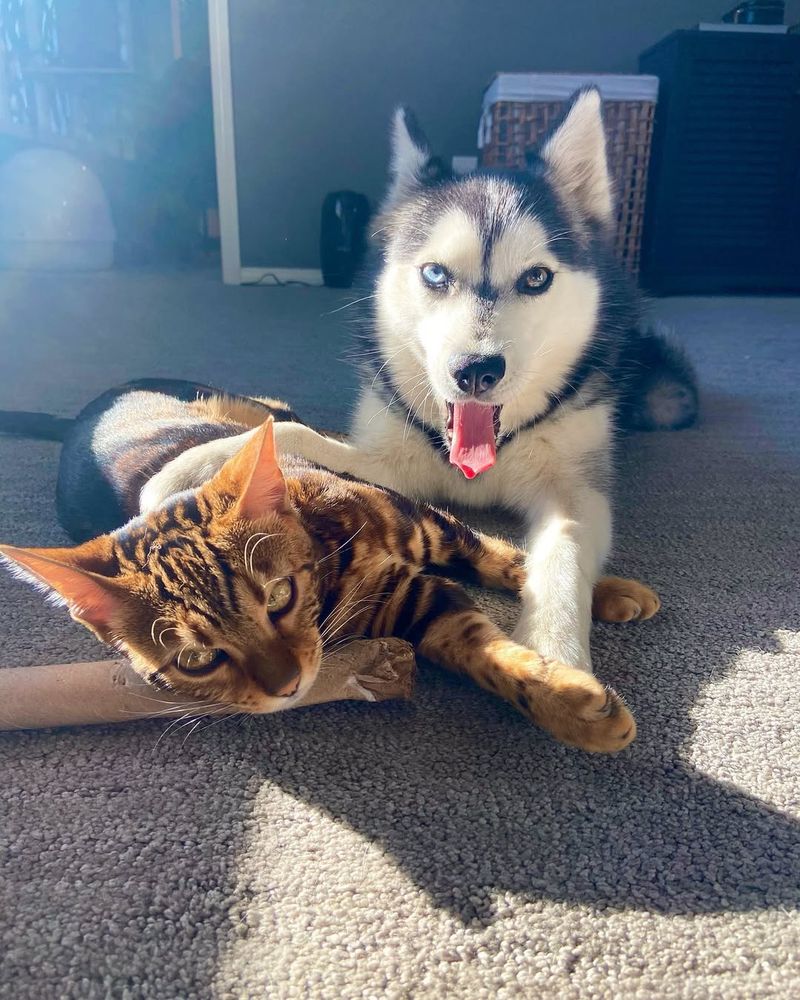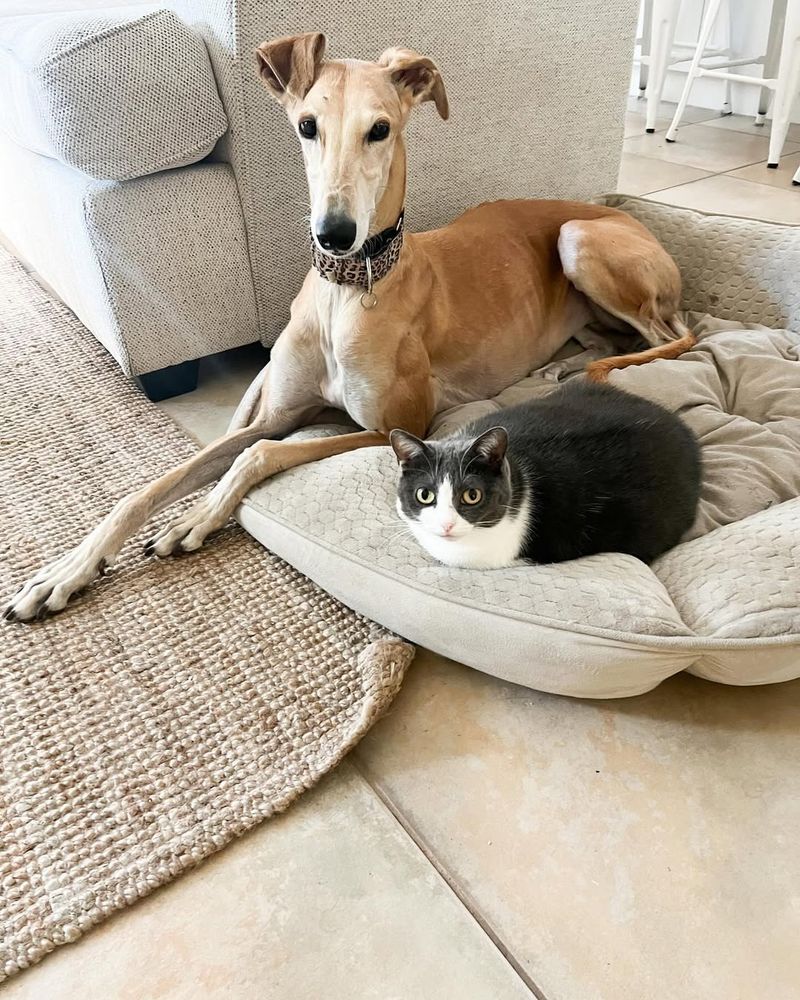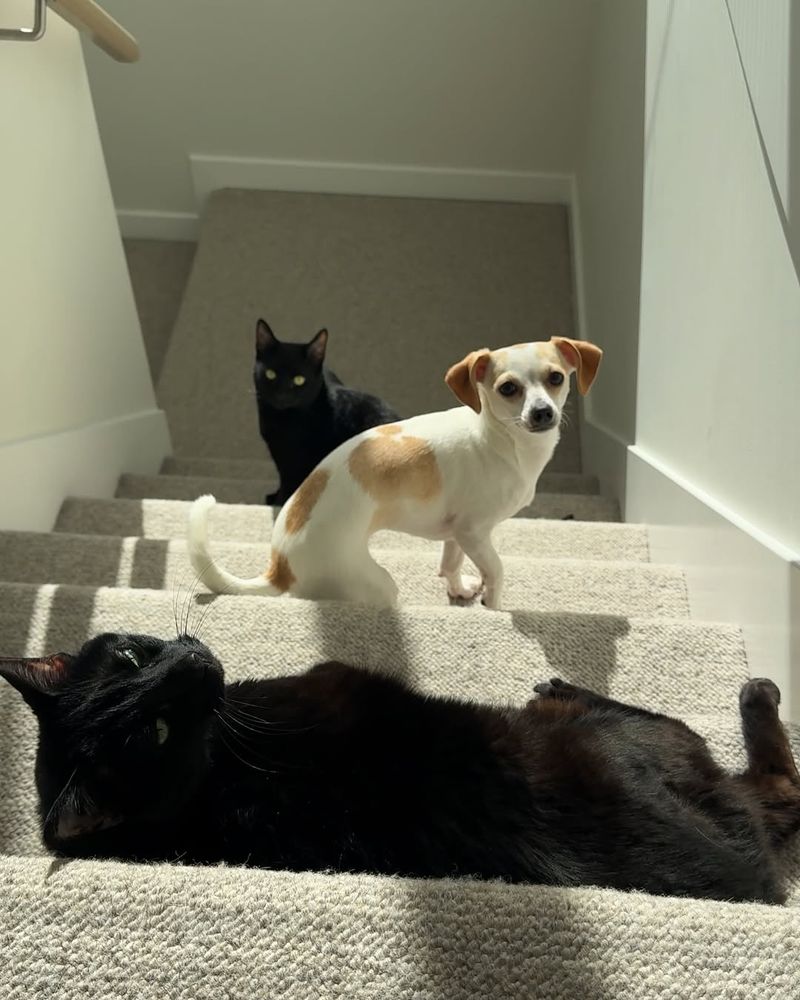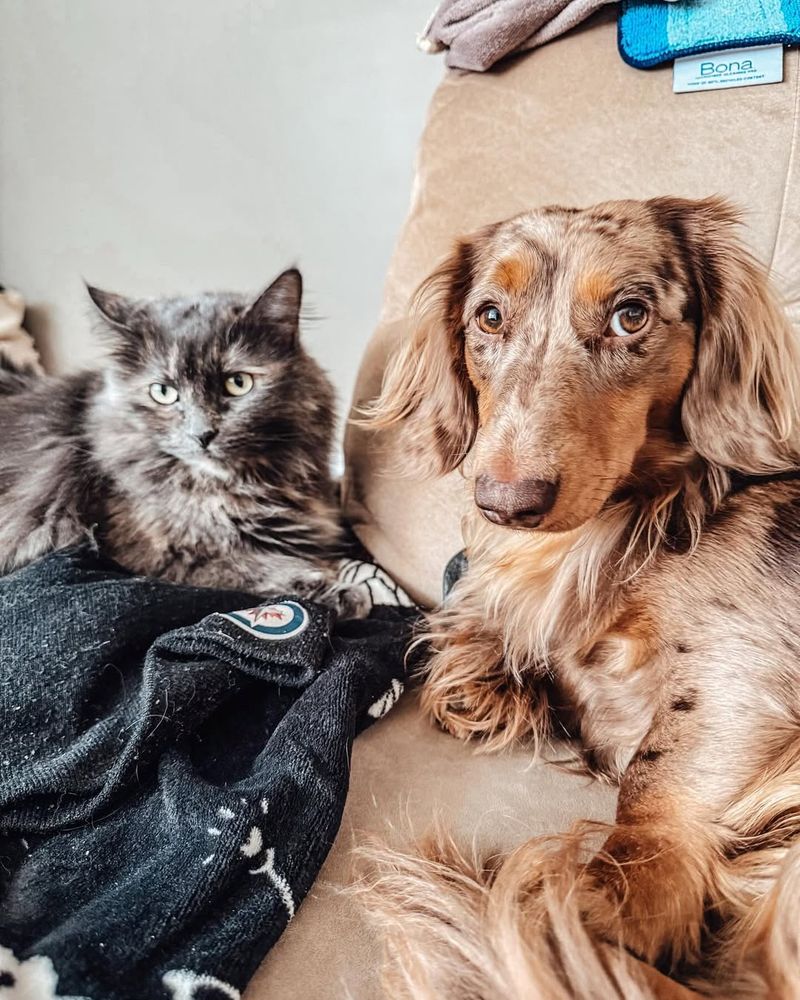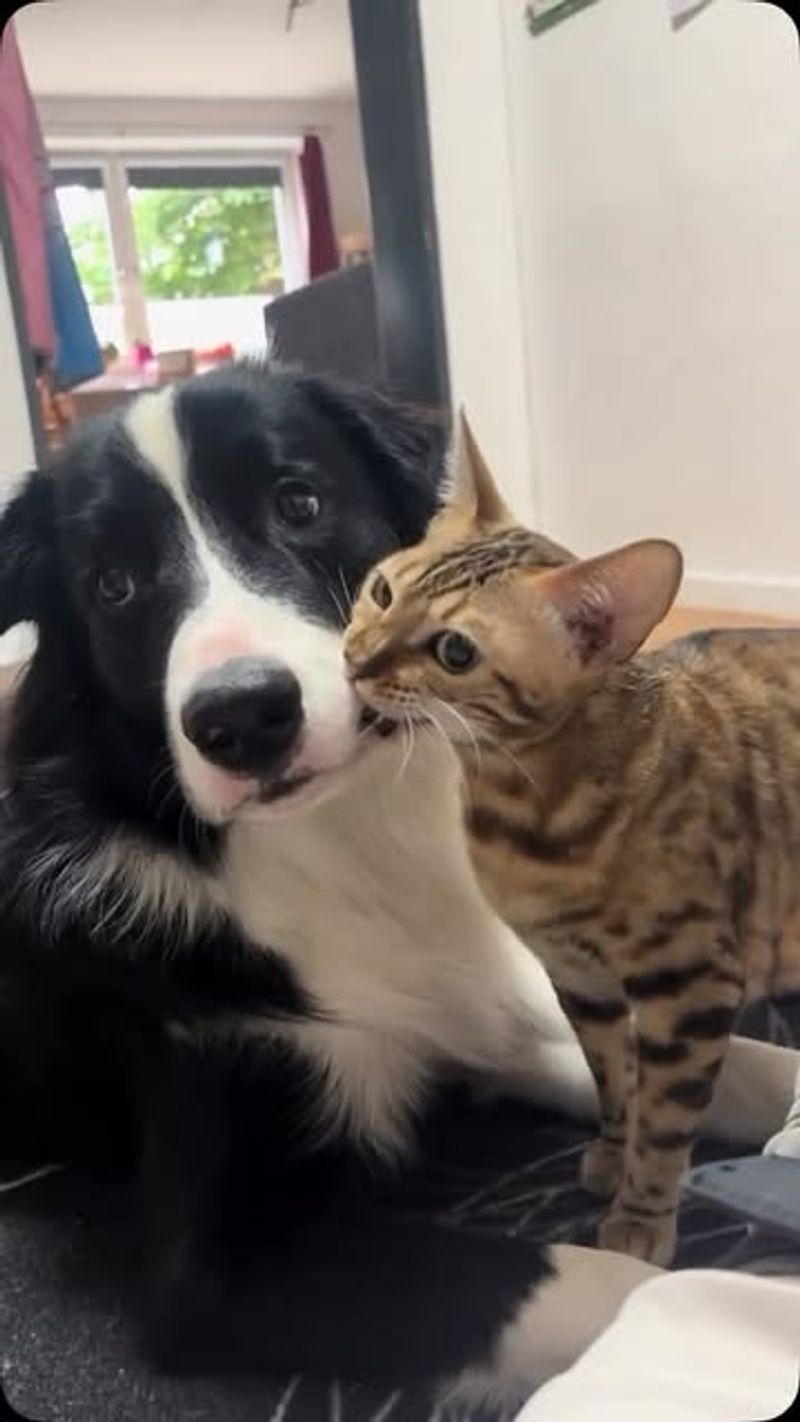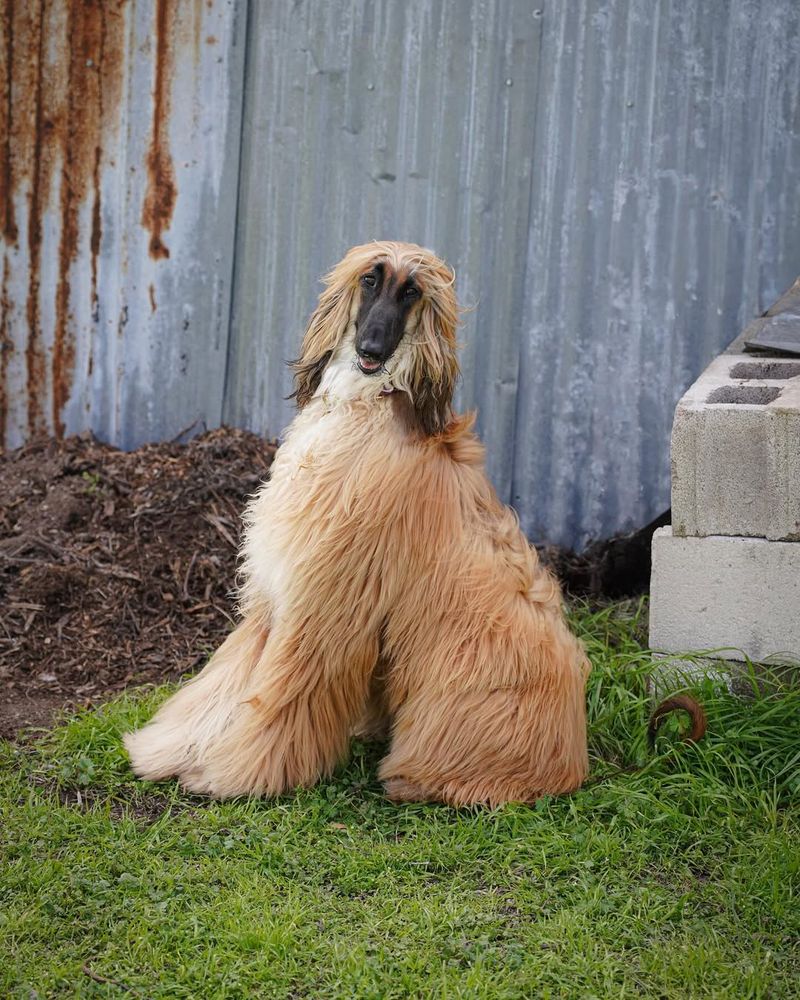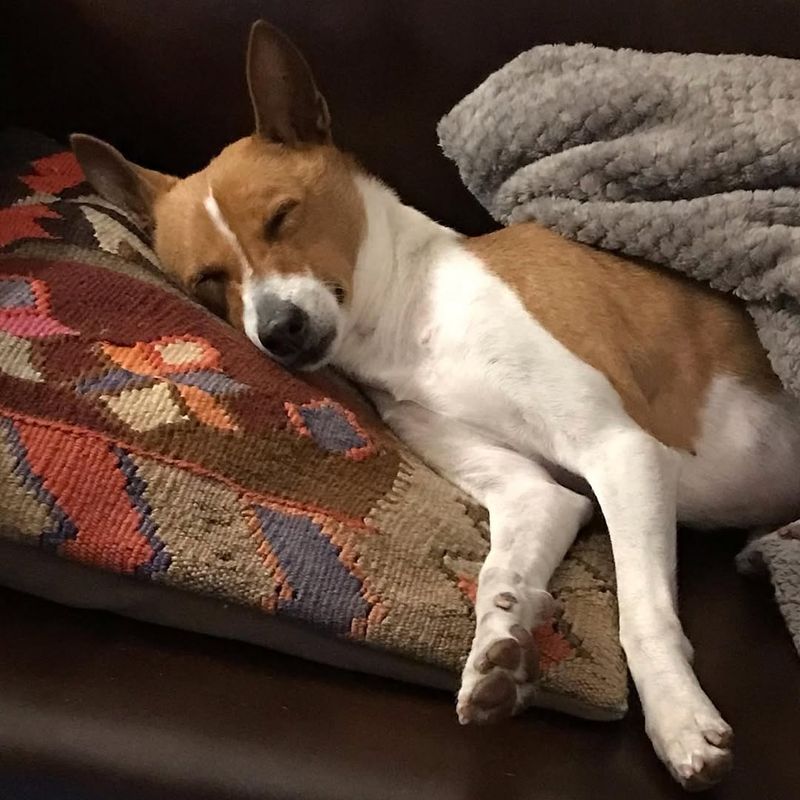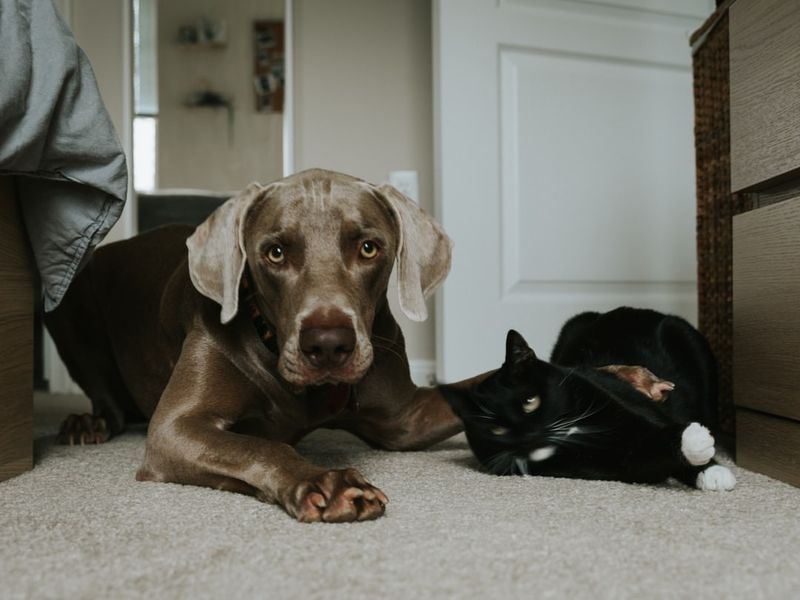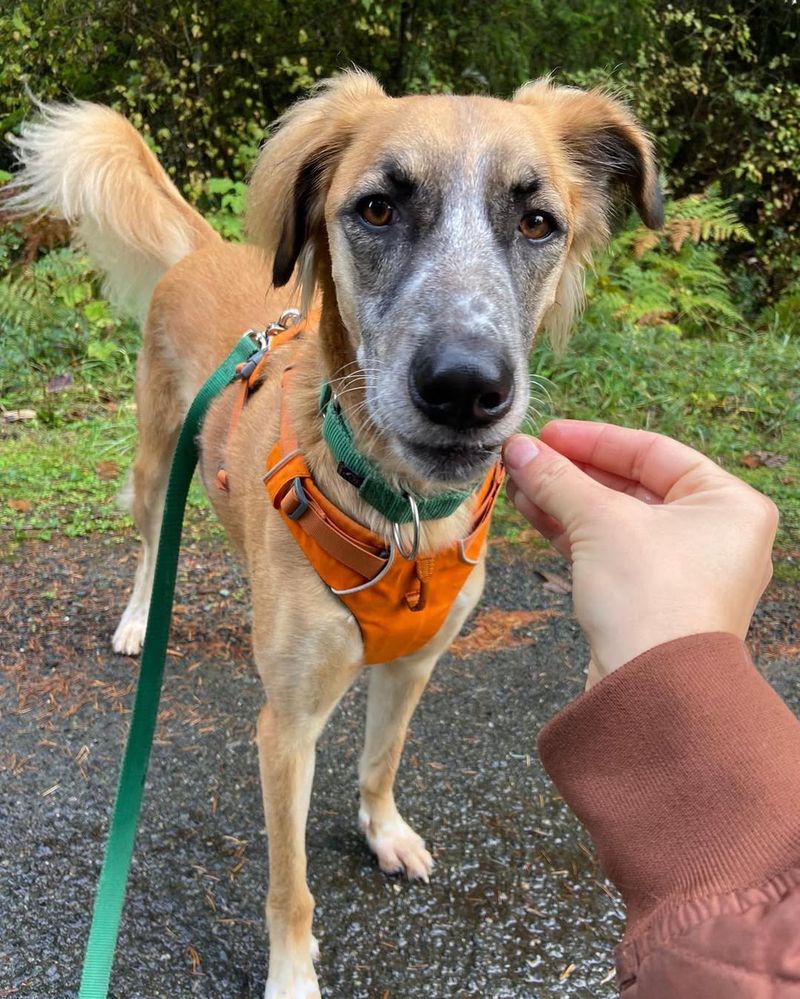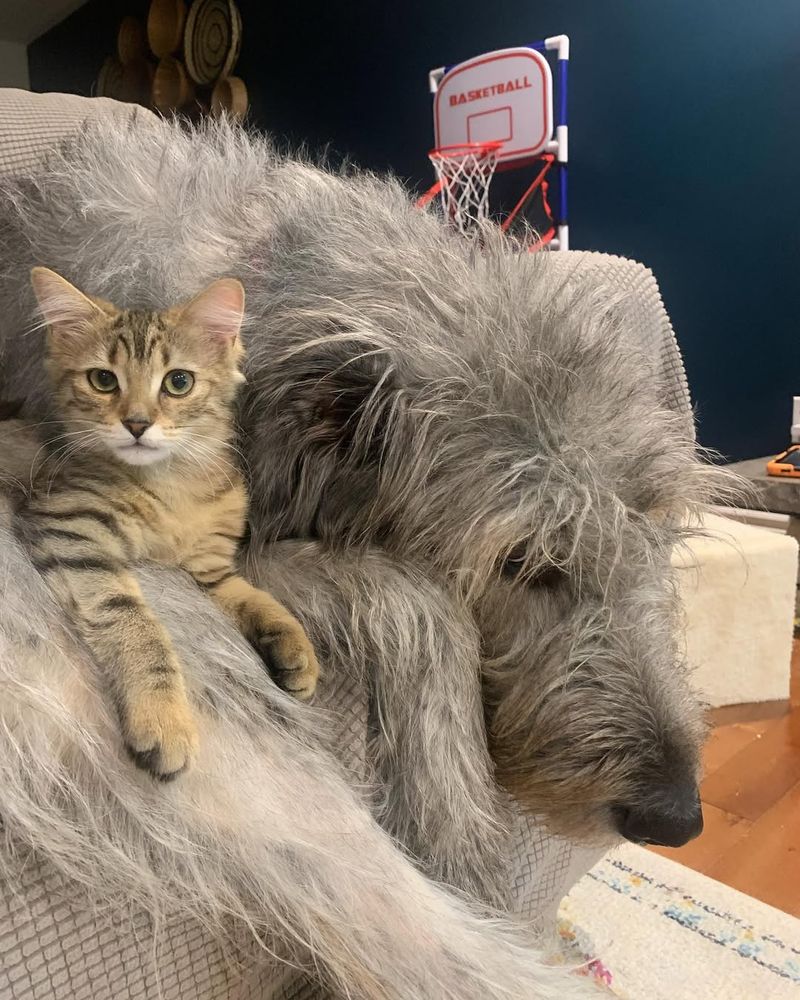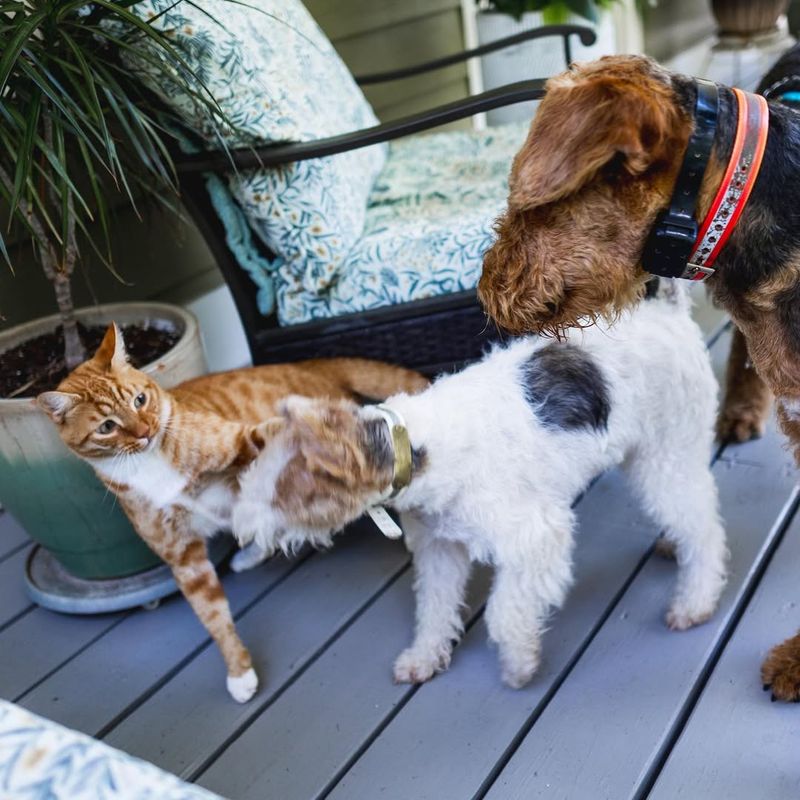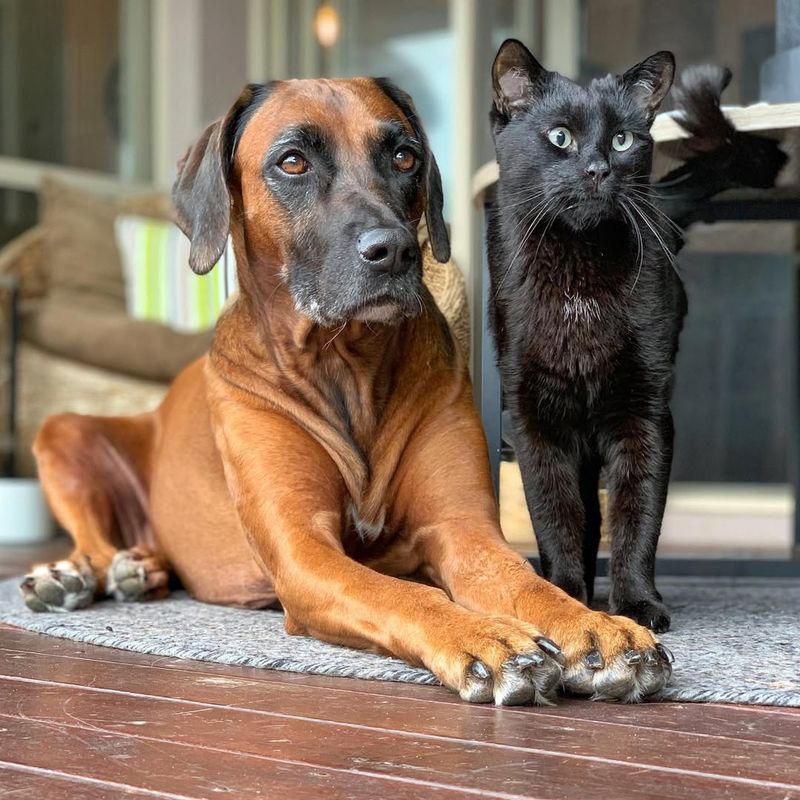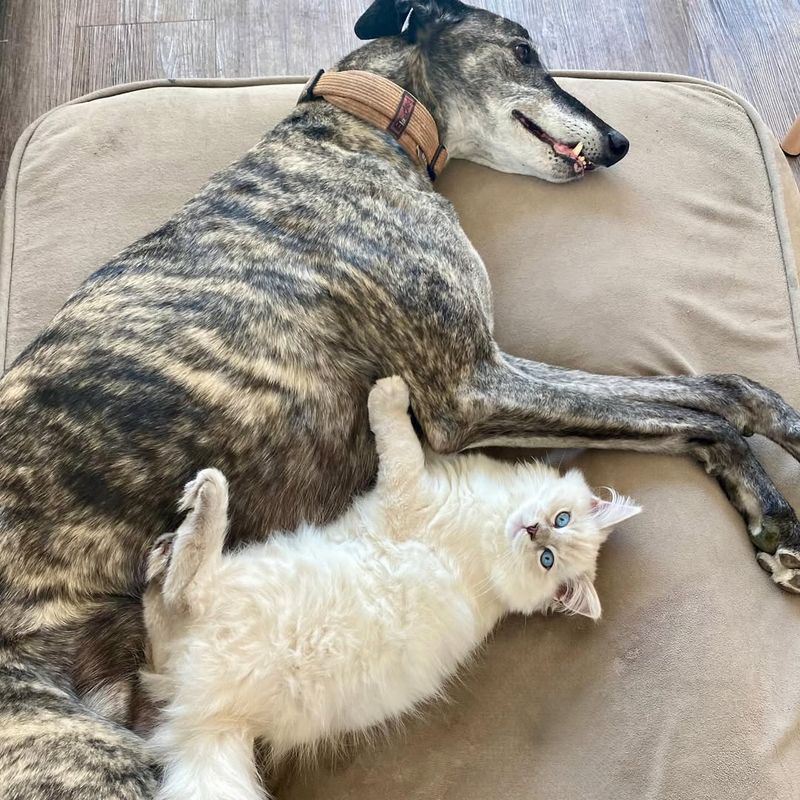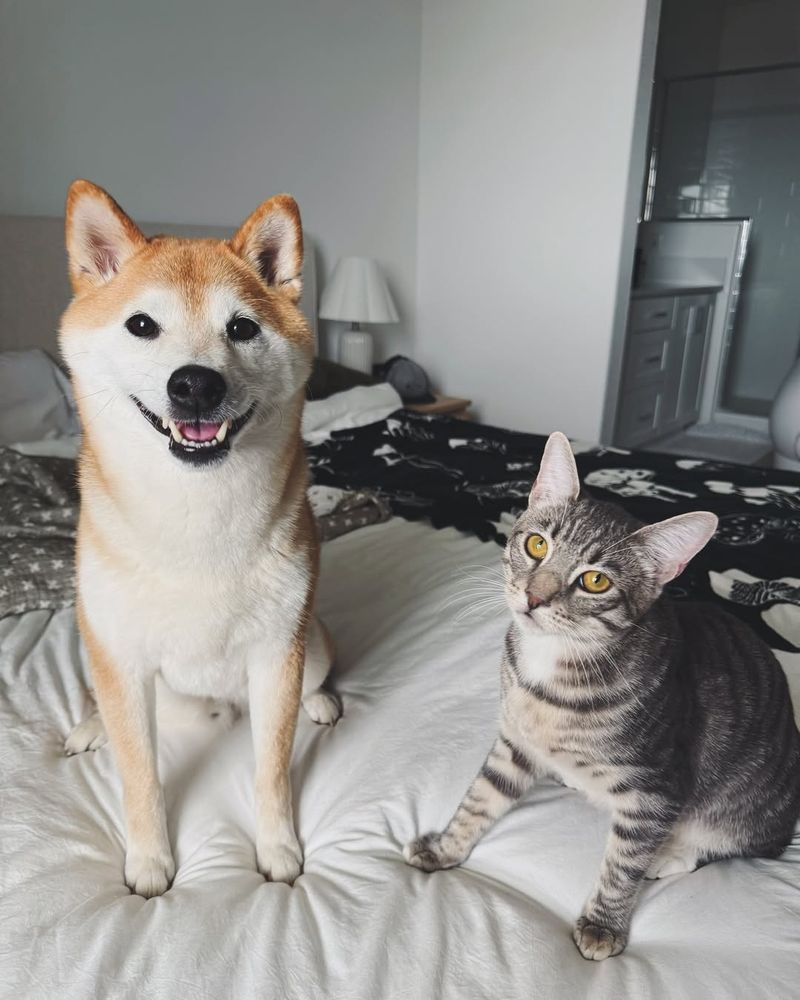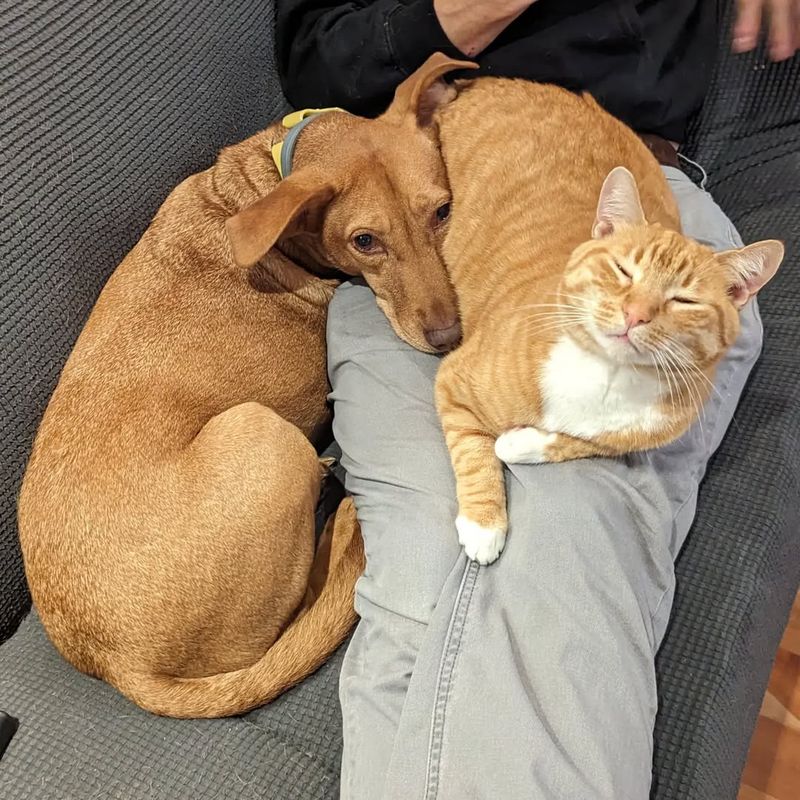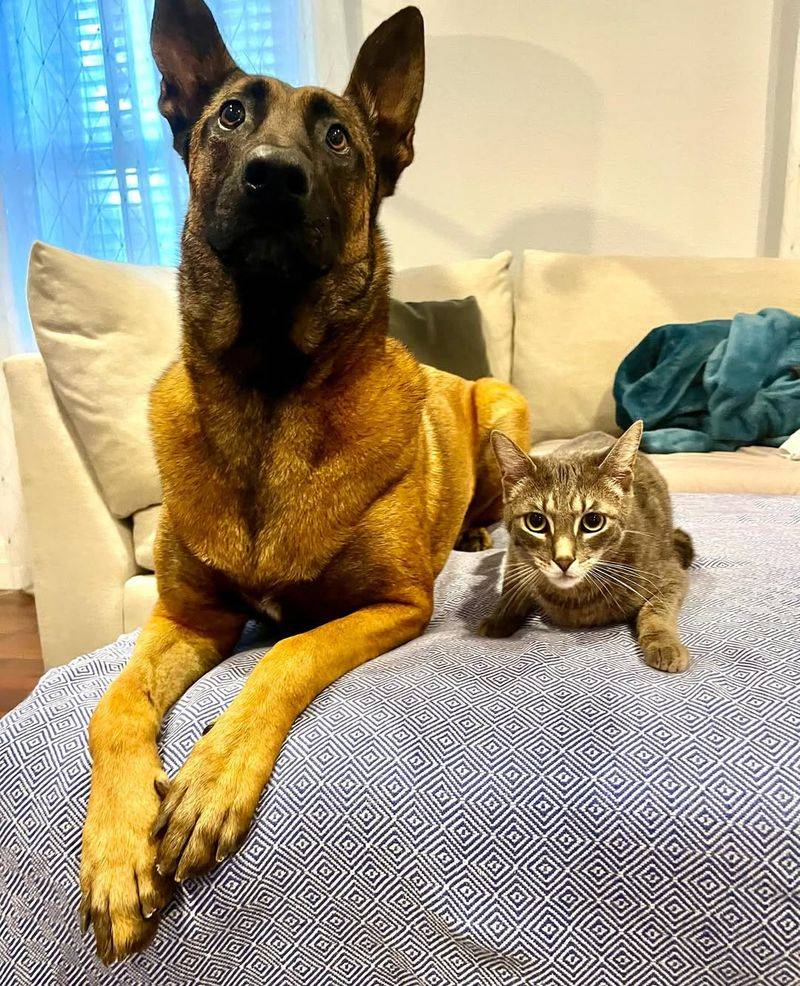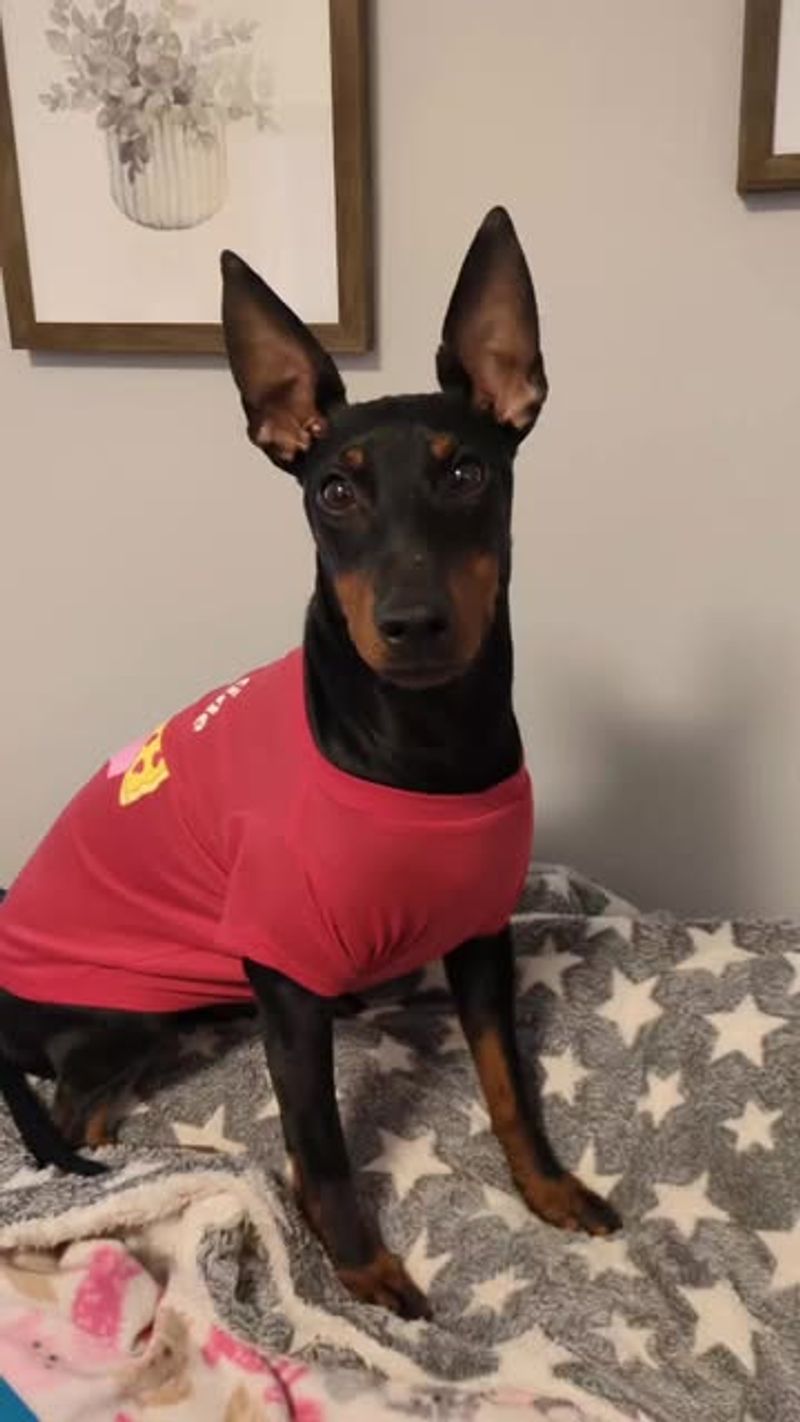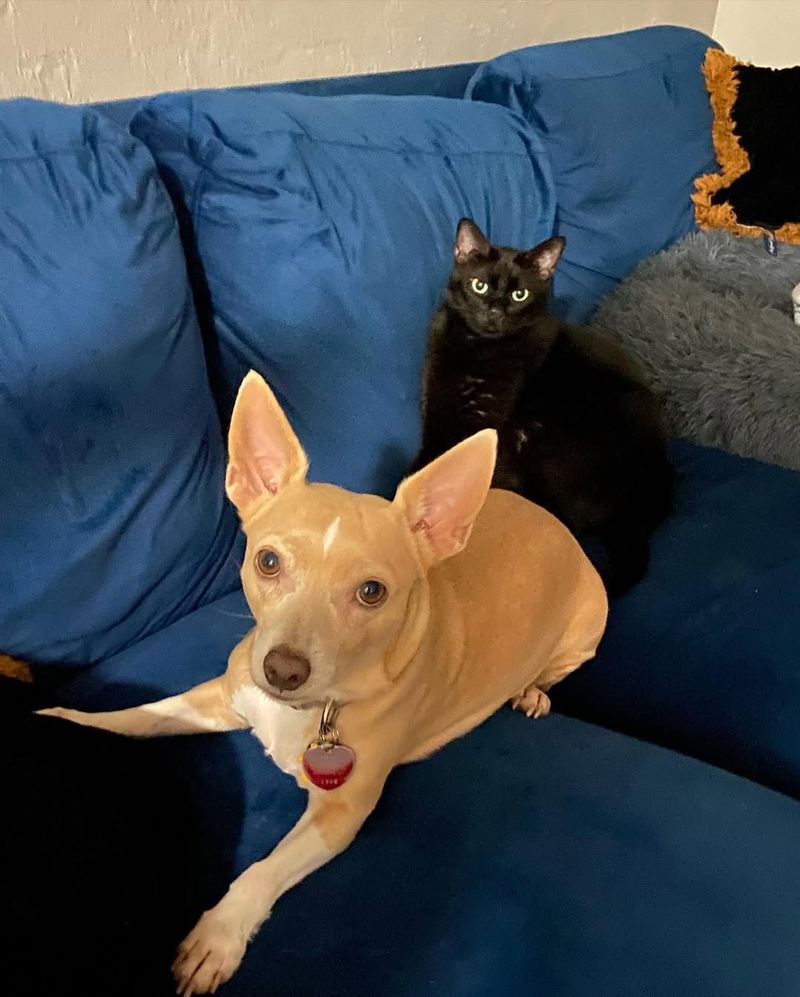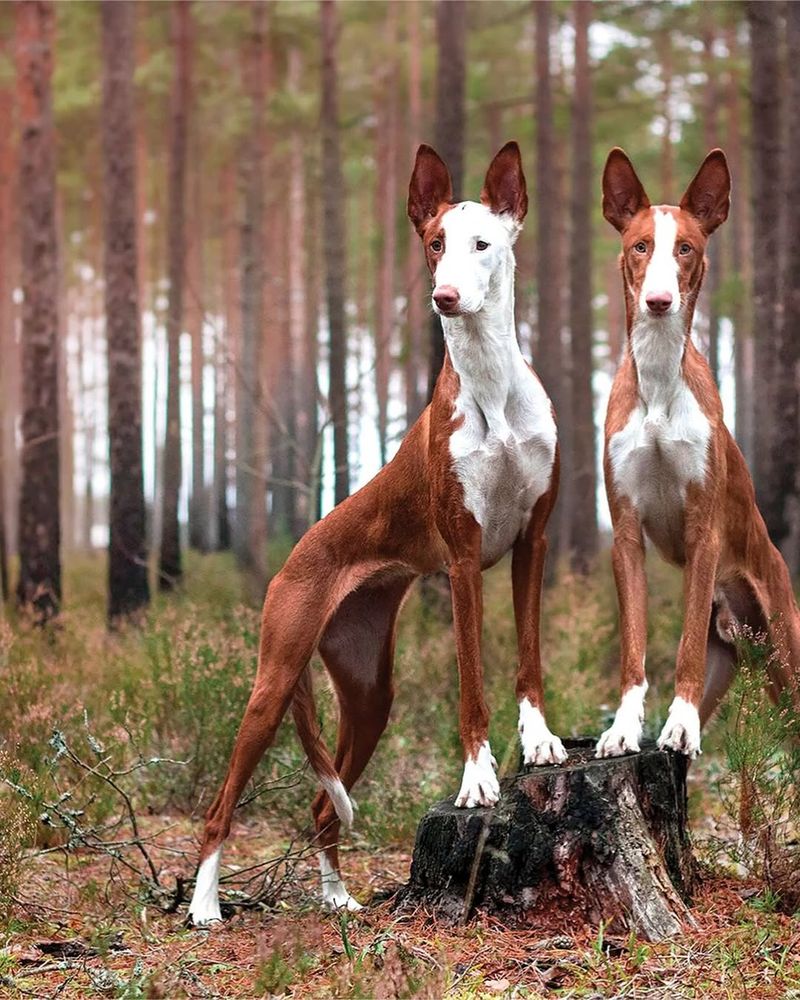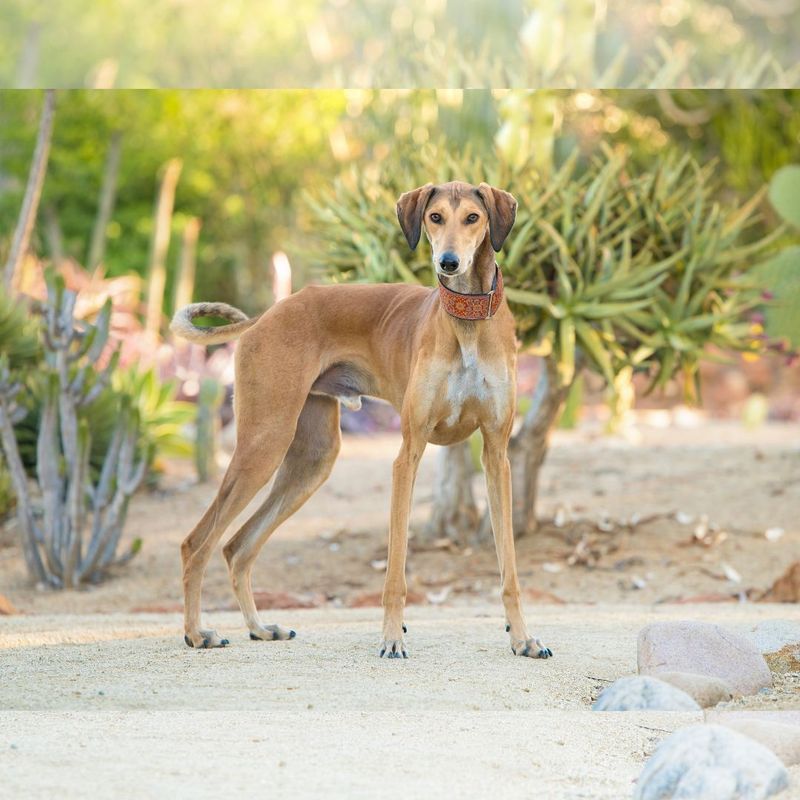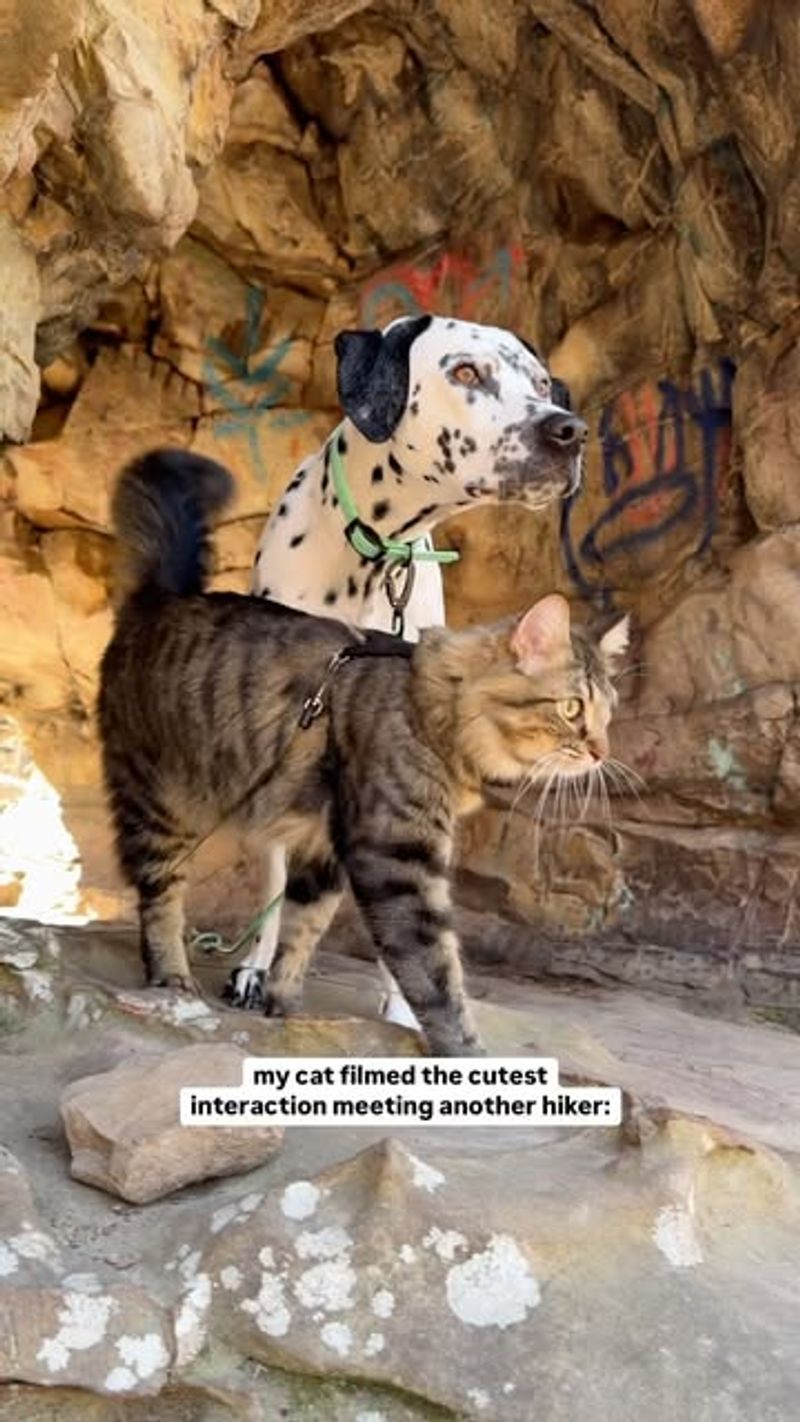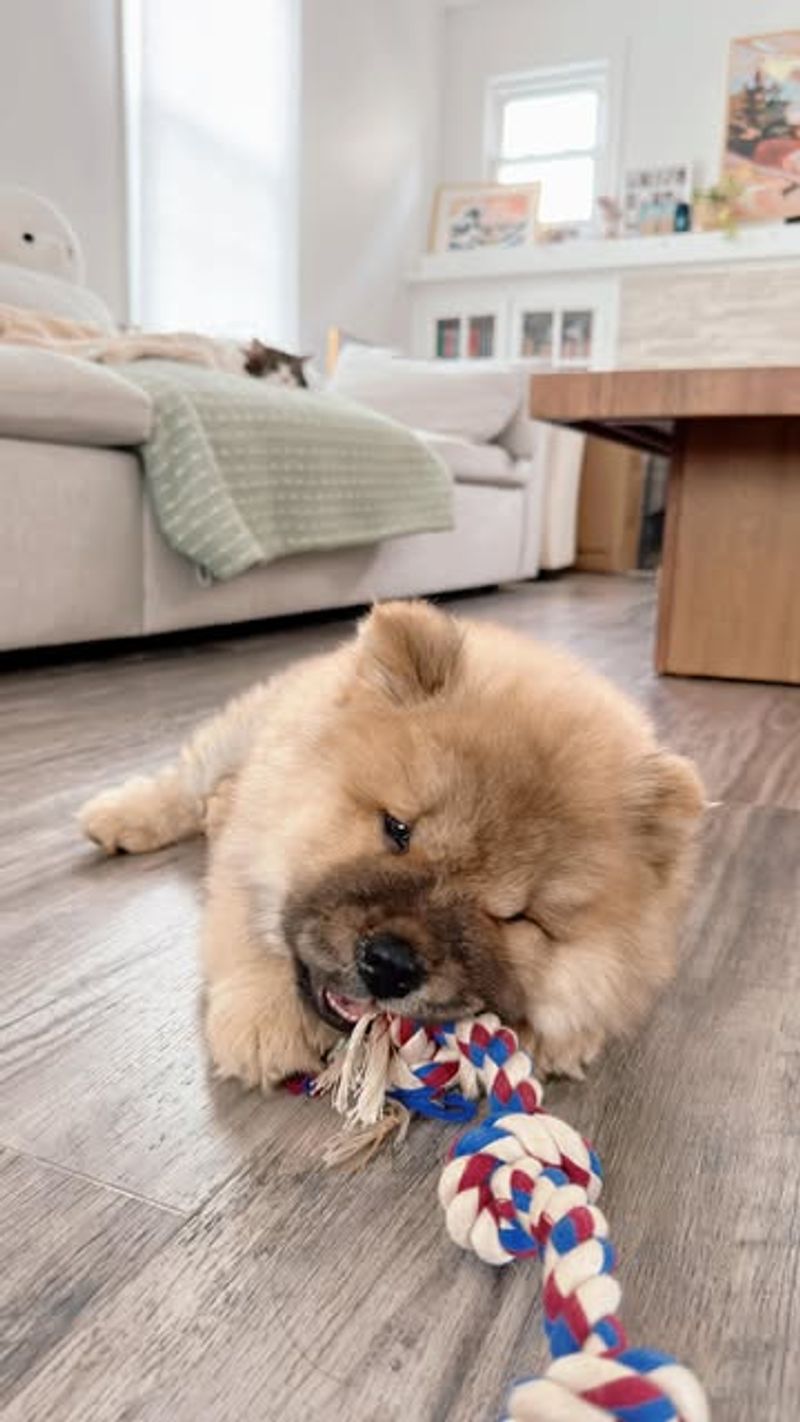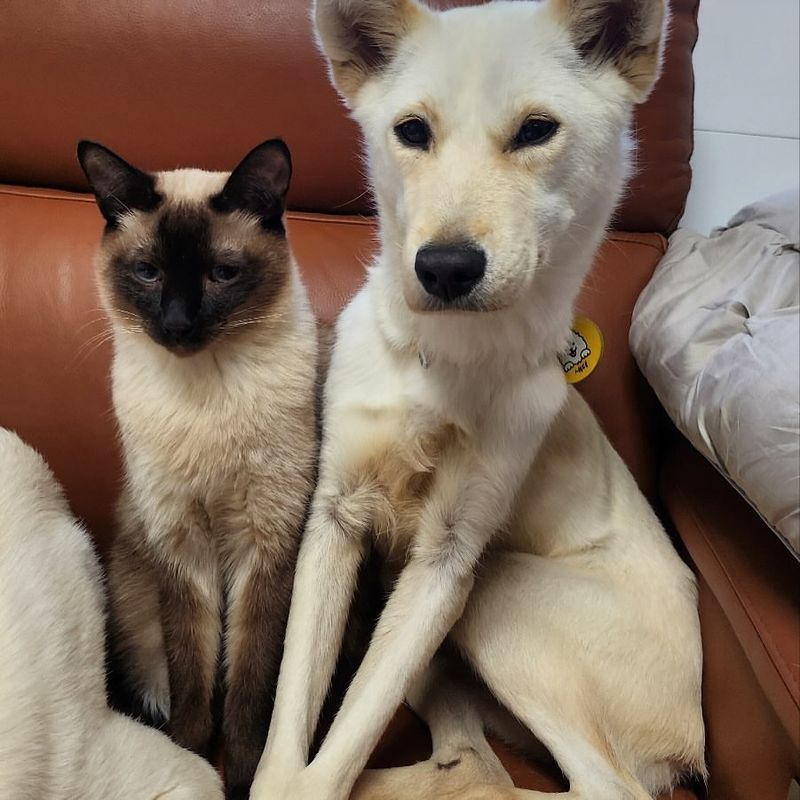Choosing a pet that fits well with your household is crucial, especially if you have both dogs and cats. While many dog breeds can get along with cats, some might not be the best match due to their natural instincts or high energy levels. This post explores 24 dog breeds that may not harmonize well with feline friends, providing insights into each breed’s characteristics and tendencies.
Alaskan Malamute
The Alaskan Malamute is known for its strength and endurance, traits that were essential for its traditional role as a sled dog. This breed tends to have a high prey drive, which might not fare well in homes with cats. Even with socialization, their instinct to chase smaller animals can be overwhelming. While they are affectionate and loyal to their families, their independent nature makes training a challenge. Owners should be prepared for regular exercise and mental stimulation. Malamutes thrive in colder climates, thanks to their dense double coat, and require consistent grooming to manage shedding.
Siberian Husky
Siberian Huskies are energetic and free-spirited dogs that require ample space and exercise. They are known for their strong prey drive, making them less amicable with cats. Even with training, their instinct to chase might prevail. Huskies are friendly and social with humans but can be independent thinkers. They require patience and consistency in training. Their thick coat is well-suited for colder environments and needs regular grooming to avoid matting. Huskies are escape artists and need secure fencing to prevent them from wandering in search of adventure.
Greyhound
Renowned for their speed, Greyhounds are sprinters with a strong chase instinct. This can be problematic in homes with cats, as their natural inclination is to pursue anything that moves quickly. Despite their athletic prowess, Greyhounds are gentle and enjoy lounging around the house. They are relatively low-maintenance but require regular outings to stretch their legs. Though they bond well with their families, care must be taken with smaller pets. Training and socialization from a young age can help manage their prey drive, though it may never be fully eliminated.
Jack Russell Terrier
Jack Russell Terriers are lively and intelligent dogs known for their hunting instincts. Originally bred for fox hunting, their high prey drive can make them a challenging fit for homes with cats. They may see cats as creatures to chase rather than companions. These terriers require lots of exercise and mental stimulation to keep them happy. They are tenacious and often stubborn, requiring firm but positive training methods. Jack Russells are affectionate with their families but need clear boundaries to prevent them from becoming overly dominant or destructive when bored.
Dachshund
Dachshunds, with their unique body shape and lively demeanor, were originally bred for hunting badgers. This history contributes to their strong prey drive, which may not be ideal in homes with cats. They often see smaller animals as targets rather than friends. These dogs are brave and sometimes stubborn, requiring consistent training and socialization to thrive. They enjoy playtime and need regular exercise to prevent weight gain due to their small stature. Grooming needs vary by coat type, but all Dachshunds benefit from routine grooming sessions to keep their coats healthy.
Border Collie
Border Collies are renowned for their intelligence and herding abilities. While these traits make them exceptional working dogs, their strong herding instinct may not suit homes with cats. They might attempt to herd cats, leading to stress for both animals. These dogs thrive on activity and mental challenges, requiring plenty of exercise and training to stay content. They bond closely with their families and excel in dog sports or tasks that engage their minds. Regular grooming is necessary to maintain their coat, and early socialization can help manage their herding instincts around smaller animals.
Afghan Hound
The Afghan Hound, known for its striking appearance and aloof personality, possesses a strong prey drive. This can be problematic for households with cats, as their instinct to chase is deeply ingrained. While they are elegant and independent, Afghan Hounds require patient training to address their stubborn streak. Socialization is crucial to help them coexist with other pets. Their long, luxurious coats need regular grooming to prevent tangles and mats. Afghan Hounds enjoy leisurely walks but also need space to run, showcasing their elegance and speed.
Basenji
Basenjis are unique dogs known for their quiet demeanor and distinct yodel-like sound. Their independent nature and high prey drive can pose challenges in homes with cats. These dogs may see smaller animals as prey rather than companions. Despite their size, Basenjis are energetic and require plenty of exercise and mental stimulation. They are fastidious and often clean themselves like cats. Training a Basenji requires patience and creativity due to their independent nature. Regular grooming is minimal, but their need for mental and physical engagement is high, making them suitable for active owners.
Weimaraner
Weimaraners are energetic and intelligent dogs originally bred for hunting. Their strong prey drive makes them less compatible with cats, as they may see them as quarry rather than housemates. Weimaraners are loyal and require a lot of physical and mental stimulation to prevent boredom. They thrive in active households that can provide regular exercise and training. Their short coat is easy to maintain, requiring minimal grooming. However, they need secure spaces since their curious nature might lead them to wander in pursuit of interesting scents and sights.
Saluki
Salukis are elegant and independent dogs known for their speed and grace. Their strong prey drive and tendency to chase can make them a challenging fit for homes with cats. These dogs form close bonds with their families but maintain an aloof demeanor with strangers. They require gentle, consistent training and enjoy both lounging and running in secure areas. Salukis have a fine, silky coat that needs regular grooming to keep it looking its best. Their combination of elegance and athleticism makes them suitable for owners who appreciate both beauty and function.
Irish Wolfhound
The Irish Wolfhound is known for its impressive size and gentle nature. Although generally good-natured, their hunting background might trigger a chase instinct towards smaller animals like cats. They are affectionate and form strong bonds with their families, needing ample space to accommodate their size. Regular exercise is essential to maintain their health, but they are surprisingly gentle indoors. Their wiry coat requires regular grooming to prevent matting. Despite their size, Irish Wolfhounds are known for their calm demeanor, making them suitable for families, provided their size and needs are respected.
Airedale Terrier
Airedale Terriers, known as the “King of Terriers,” are energetic and intelligent dogs with a strong prey drive. This trait can pose challenges in homes with cats, as they might perceive them as prey. These terriers thrive on mental and physical stimulation, requiring active engagement to channel their energy positively. They are quick learners and respond well to training that is firm yet positive. Regular grooming is necessary to maintain their wiry coat, and they benefit from structured activities that cater to their inquisitive and lively nature.
Rhodesian Ridgeback
Rhodesian Ridgebacks are known for their formidable presence and strong-willed nature. Originally bred for hunting lions, their prey drive can be incompatible with homes that include cats. They are loyal and protective, requiring firm and consistent training to bring out their best traits. Ridgebacks need regular exercise and thrive in environments where they can run freely. Their short coat is easy to care for, but their independent nature means they need clear boundaries and leadership. Proper socialization from an early age can help mitigate potential issues with smaller animals.
Whippet
Whippets are gentle and affectionate dogs with a strong chase instinct. Their prey drive makes them less suitable for homes with cats, as they might see them as targets to pursue. Despite their speed, Whippets are known for being couch potatoes indoors, enjoying cuddles and relaxation. They require regular outdoor exercise to indulge their sprinting capabilities. Their short coat requires minimal grooming, making them low-maintenance pets. Whippets bond closely with their families and thrive in environments where they can alternate between bursts of activity and periods of rest.
Shiba Inu
Shiba Inus are independent and spirited dogs originating from Japan. Known for their strong prey drive, they might not coexist peacefully with cats. Their natural instincts can lead them to chase smaller animals. Shibas are clean and fastidious, resembling cats in their grooming habits. They require patient and consistent training to manage their independent streak and thrive in environments with clear rules. Their double coat sheds seasonally and requires regular brushing to maintain. Shiba Inus are best suited for owners who appreciate their unique personality and can provide structured guidance.
Vizsla
Vizslas are energetic and affectionate dogs known for their hunting heritage. Their strong prey drive can make them a challenging fit for homes with cats, as they might view them as quarry. These dogs thrive on companionship and require ample exercise to channel their energy positively. They are eager to please and respond well to training that incorporates positive reinforcement. Vizslas have a short, sleek coat that requires minimal grooming. They form deep bonds with their families and excel in active households that can meet their physical and emotional needs.
Belgian Malinois
Belgian Malinois are highly intelligent and driven dogs often used in police and military work. Their high energy levels and strong prey drive may not be ideal in homes with cats. These dogs require regular mental and physical stimulation to prevent boredom, which can lead to destructive behavior. They excel in structured activities that challenge their minds and bodies. Malinois have a short coat that is easy to maintain, but they need experienced owners who can provide firm and consistent training. Early socialization is key to managing their instincts around smaller pets.
Manchester Terrier
Manchester Terriers are small, energetic dogs with a strong prey drive, which might not make them the best fit for homes with cats. They were originally bred for hunting vermin, and their instincts reflect this history. These terriers are intelligent and thrive on mental stimulation and physical activity. They respond well to training that is consistent and positive. Their short coat is low-maintenance, requiring minimal grooming. Manchester Terriers are best suited for owners who can provide an active and engaging lifestyle, ensuring their natural instincts are channeled positively.
Pharaoh Hound
Pharaoh Hounds are graceful and intelligent dogs with a strong prey drive, often unsuitable for homes with cats. Their instinct to chase is natural and can be difficult to curb. These hounds are affectionate and form close bonds with their families. They require regular exercise and enjoy activities that engage their keen senses. Pharaoh Hounds have a short coat that requires minimal grooming. Their unique ability to blush when excited adds to their charm. They thrive in environments where they can safely explore and satisfy their instinctual drives.
Ibizan Hound
Ibizan Hounds are athletic and agile dogs known for their keen hunting instincts. Their strong prey drive makes them less suitable for homes with cats, as they may see them as quarry. These dogs are friendly and social, forming strong connections with their families. They enjoy both active play and quiet companionship, striking a balance between the two. Their short coat is easy to care for, requiring minimal grooming. Ibizan Hounds benefit from environments that offer both mental and physical stimulation, allowing them to channel their energy productively.
Sloughi
Sloughis, often called Arabian Greyhounds, are elegant dogs with a strong prey drive, making them a challenging fit for homes with cats. Their chase instinct is deeply ingrained. These dogs are affectionate with their families but can be reserved with strangers. They require regular exercise and enjoy activities that allow them to run at full speed. Their short coat is easy to maintain, requiring only occasional grooming. Sloughis thrive in environments where they can satisfy their need for speed and form strong bonds with attentive owners.
Dalmatian
Dalmatians are energetic and playful dogs known for their unique spots. Their high energy levels and prey drive might not make them ideal companions for homes with cats. These dogs thrive on activity and require regular physical and mental stimulation to prevent boredom. They are intelligent and respond well to positive training methods. Dalmatians have a short coat that sheds regularly and requires consistent grooming. They form strong bonds with their families and are best suited for active owners who can match their zest for life and provide ample exercise opportunities.
Chow Chow
Chow Chows are known for their lion-like manes and independent nature. While they are known for their aloofness, their strong hunting instincts can make them less compatible with cats. These dogs are loyal to their families but require patient and consistent training to manage their independent streak. Socialization is essential to prevent territorial behavior. Chow Chows have a dense coat that requires regular grooming to manage shedding and prevent mats. They thrive in environments where their dignity is respected, and their need for space and independence is understood.
Korean Jindo
Korean Jindos are intelligent and loyal dogs with a strong prey drive, making them a challenging fit for homes with cats. Their natural hunting instincts are deeply rooted. Jindos form strong bonds with their families and are known for their bravery and independence. They require firm and consistent training to bring out their best qualities. These dogs have a short double coat that requires regular grooming to manage seasonal shedding. Jindos thrive in environments where their loyalty and independence are appreciated and can be channeled positively.
